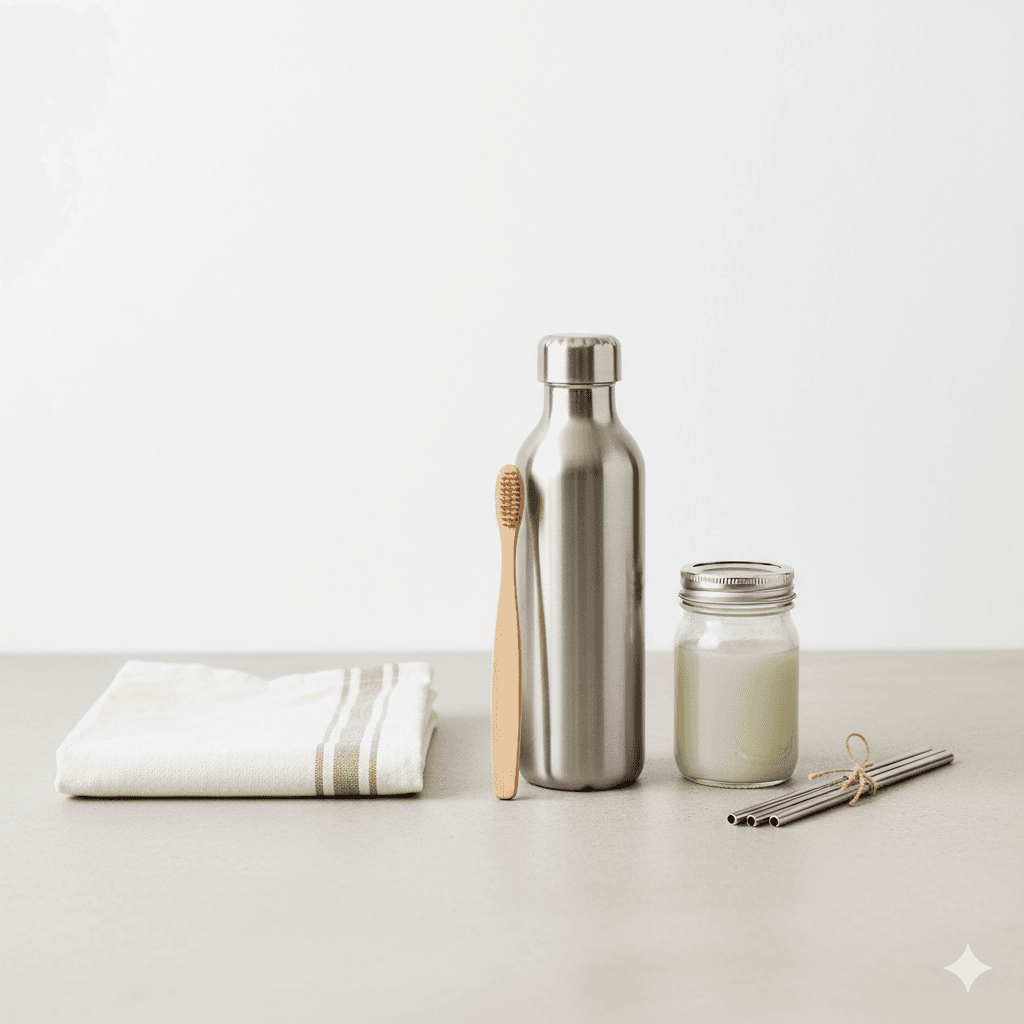Zero to Hero: 5 Simple Zero-Waste Swaps You Can Make This Week

Many people hesitate to embrace a zero-waste lifestyle because they imagine needing to buy a lot of expensive new items or completely overhaul their lives. In reality, the best way to start is by replacing the most common single-use items in your home and routine with durable, reusable alternatives. These five simple swaps are easy on the wallet and have a massive impact on the environment.
Swap 1: Plastic Bags for Reusable Totes
This is the quintessential starting point for zero-waste living. Plastic grocery bags are notorious for ending up in landfills and polluting waterways.
The Swap: Invest in 3-5 sturdy, washable cotton or canvas tote bags.
Pro-Tip: Keep a few cloth bags in your car, your handbag, or clipped to your keychain so you're never caught bag-less on an unexpected shopping trip.
Bonus Step: Use reusable mesh produce bags instead of the thin plastic bags in the vegetable aisle.
Swap 2: Disposable Coffee Cups for a Travel Mug
The inner lining of most disposable coffee cups makes them non-recyclable. Considering that billions of these cups are used each year, this is a high-impact change.
The Swap: Get a stylish, high-quality, reusable coffee cup or thermal mug.
Pro-Tip: Many coffee shops offer a small discount if you bring your own cup, saving you money in the long run! Make it a habit to clean it immediately when you get home so it’s ready for the next day.
Swap 3: Plastic Water Bottles for a Stainless Steel Bottle
Aside from the obvious waste issue, constantly buying bottled water is expensive and uses significant resources for production and transportation.
The Swap: A durable stainless steel or glass water bottle.
Pro-Tip: Focus on carrying your water bottle with you everywhere. This not only reduces waste but also encourages you to stay hydrated throughout the day.
Swap 4: Plastic Toothbrushes for Bamboo
A typical plastic toothbrush takes hundreds of years to decompose. The handle of a bamboo toothbrush, however, is compostable and made from a renewable resource.
The Swap: Switch your family's standard plastic toothbrushes for bamboo ones.
Pro-Tip: Look for brands that also use plant-based or biodegradable bristles, or those that allow you to easily remove the nylon bristles for recycling before composting the handle.
Swap 5: Paper Towels for Reusable Cloth Wipes
Paper towels are costly and create a significant amount of trash. Most cleaning can be done just as effectively with a reusable cloth.
The Swap: Replace your paper towel rolls with a stack of washable rags, old cotton T-shirts cut into squares, or designated cleaning cloths.
Pro-Tip: Keep a separate container (a small hamper or bucket) for used cleaning cloths to make the laundry process simple and contained.
By tackling these five areas first, you’ll build momentum and prove to yourself that sustainable living is achievable, not overwhelming.